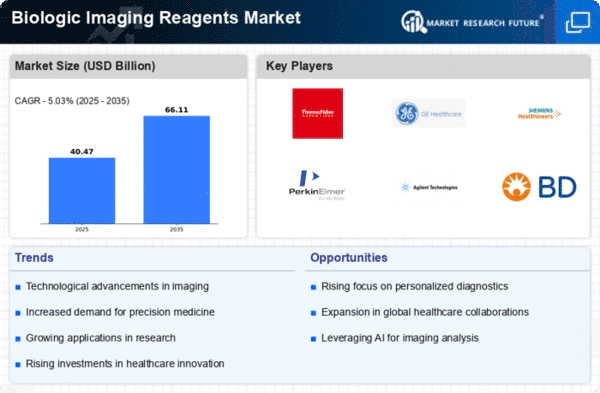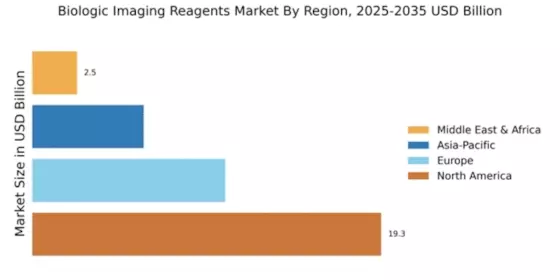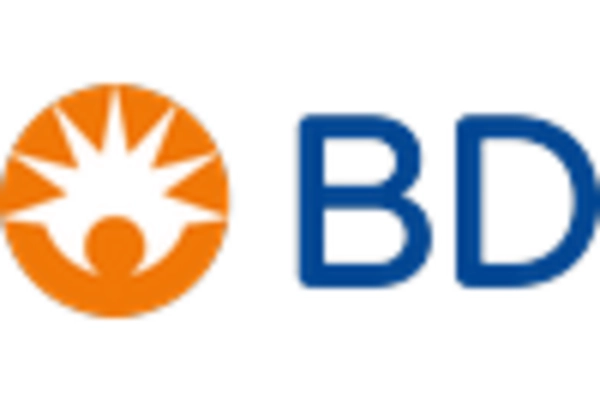North America : Market Leader in Innovation
North America continues to lead the Biologic Imaging Reagents market, holding a significant share of 19.26% in 2024. The region's growth is driven by advanced healthcare infrastructure, increasing R&D investments, and a rising prevalence of chronic diseases. Regulatory support from agencies like the FDA further catalyzes innovation and adoption of new imaging technologies, enhancing market dynamics.
The competitive landscape is robust, with key players such as Thermo Fisher Scientific, GE Healthcare, and Siemens Healthineers dominating the market. The U.S. is the primary contributor, benefiting from a strong focus on technological advancements and strategic collaborations. This environment fosters a thriving ecosystem for both established companies and emerging startups, ensuring continuous growth in the sector.
Europe : Emerging Market with Growth Potential
Europe's Biologic Imaging Reagents market is poised for growth, currently valued at 10.65%. The region benefits from a strong emphasis on research and development, supported by government initiatives aimed at enhancing healthcare technologies. Increasing investments in healthcare infrastructure and a growing aging population are key drivers of demand, alongside stringent regulatory frameworks that ensure safety and efficacy in imaging practices.
Leading countries such as Germany, France, and the UK are at the forefront of this market, hosting major players like Siemens Healthineers and Miltenyi Biotec. The competitive landscape is characterized by collaborations between public and private sectors, fostering innovation. As the market evolves, the presence of established companies alongside new entrants is expected to drive further advancements in imaging technologies.
Asia-Pacific : Rapidly Growing Market Landscape
The Asia-Pacific region is witnessing rapid growth in the Biologic Imaging Reagents market, currently valued at 6.15%. Factors such as increasing healthcare expenditure, rising awareness of advanced imaging technologies, and a growing patient population are driving this expansion. Additionally, supportive government policies aimed at improving healthcare access and quality are acting as catalysts for market growth.
Countries like China, Japan, and India are leading the charge, with significant investments from both local and international players. The competitive landscape is becoming increasingly dynamic, with companies like Agilent Technologies and PerkinElmer making notable inroads. As the region continues to develop its healthcare infrastructure, the demand for innovative imaging solutions is expected to rise significantly, further enhancing market prospects.
Middle East and Africa : Emerging Market with Challenges
The Middle East and Africa region, with a market size of 2.47%, presents unique challenges and opportunities in the Biologic Imaging Reagents sector. The growth is primarily driven by increasing healthcare investments and a rising prevalence of diseases requiring advanced imaging solutions. However, regulatory hurdles and varying healthcare standards across countries can impede market growth. Nonetheless, initiatives to improve healthcare infrastructure are paving the way for future advancements.
Countries like South Africa and the UAE are leading the market, with a growing presence of key players such as Becton Dickinson and Bio-Rad Laboratories. The competitive landscape is evolving, with both local and international companies striving to capture market share. As healthcare systems improve, the demand for biologic imaging reagents is expected to rise, presenting significant growth opportunities in the region.


















